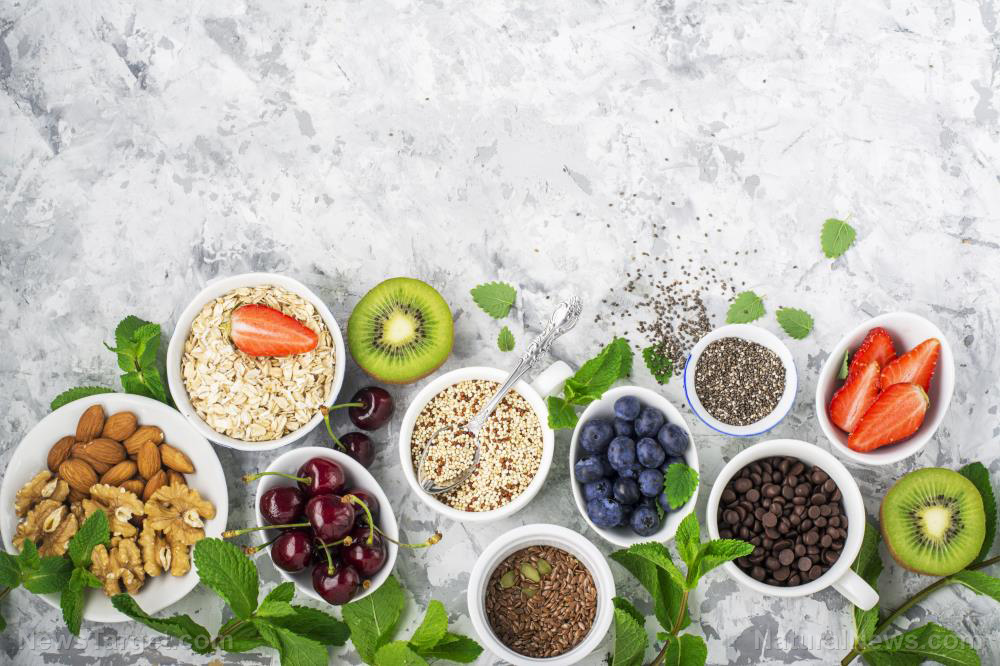From fighting inflammation to regulating blood sugar, here are 7 reasons why you should add Brussels sprouts to your diet
08/07/2020 / By Divina Ramirez

Brussels sprouts are one of the most disliked, if not hated, foods of children and adults alike. It’s no secret that their sharp, bitter taste and limp texture don’t make for quite a delectable combination, but experts caution that people pushing their sprouts to the side might be missing out on some important nutrients and health benefits.
In one of her recent articles published online, Cynthia Sass, a sports nutrition specialist and a senior dietitian at the University of South Florida, reported that Brussels sprouts can confer a range of benefits on human health, from better digestion to enhanced response against infection and disease.
Top health benefits of Brussels sprouts
Brussels sprouts are classified under the Brassica genus of plants alongside other unpopular vegetables, such as broccoli, kale and chard. Despite their less-than-pleasant taste, brassicas are hailed for their numerous potent compounds, including sulforaphane and glucosinolates.
These compounds are behind most of the health benefits attributed to Brussels sprouts and other brassicas. It also doesn’t hurt that the sprouts are rich in antioxidants, plant proteins, fiber and indispensable nutrients to boot.
Here are some of the science-backed health benefits linked to Brussels sprouts, as detailed in Sass’ article:
Combat cellular damage
Like other brassicas, Brussels sprouts are just chock full of antioxidants, including kaempferol and alpha-lipoic acid. Together, these compounds help combat and neutralize harmful molecules called free radicals that can damage cells, proteins and lipids.
If left unchecked, cellular damage can trigger the onset of different cancers. Glucosinolates, the pungent, sulfur-containing compounds in brassicas, help protect against this. Studies found that glucosinolates can inhibit tumor formation and slash cancer risk.
Fight inflammation
Thanks to high amounts of vitamin C, Brussels sprouts can also reduce inflammation. Vitamin C, an essential micronutrient, also acts as an antioxidant that curbs the production of free radicals. Vitamin C can also reduce oxidative stress that often leads to inflammation.
Sulforaphane, a sulfur-rich compound in Brussels sprouts and other brassicas, also has a significant impact on inflammation. Scientists find that sulforaphane can help suppress chronic inflammation linked to conditions like arthritis, diabetes and heart disease.
Boost immune function
On top of fighting free radicals and reducing inflammation, vitamin C also supports overall immune health. Sass notes that just one cup of cooked Brussels sprouts contains more than 150 percent of the daily value of vitamin C.
This micronutrient is also essential for collagen production. Collagen is an important protein that provides structural support to cartilage, ligaments, tendons, bones and skin. In addition, vitamin C helps maintain good eyesight and boosts iron absorption.
Reduce the risk of infection and disease
A strong immune system can defend the body more effectively against infection and disease. Brussels sprouts, being rich in immune-boosting nutrients and plant compounds, can help minimize the risk of getting sick and lessen its occurrence.
Promote optimal gut health
Regular consumption of Brussels sprouts can lead to better digestion and optimal gut health in the long run. Nearly half of the fiber found in Brussels sprouts is insoluble.
This particular fiber helps soften stool to make it easier to pass, thus reducing the risk of bloating, indigestion, constipation and other gastrointestinal problems.
Protect against diabetes
Soluble fiber, on the other hand, has more far-reaching benefits for overall health. This particular fiber inhibits the absorption of excess glucose in the gut. It also helps regulate the production of insulin, the hormone responsible for regulating blood sugar.
The antioxidant called alpha-lipoic acid in Brussels sprouts have long been studied for their reported anti-diabetic properties.
For instance, scientists from the University of British Columbia in Canada found several studies in support of the anti-diabetic potential of alpha-lipoic acid. In particular, the compound can reduce oxidative stress due to metabolic disturbances and abnormalities that are characteristic of diabetes.
Alpha-lipoic acid can also combat vascular or endothelial dysfunction, a type of non-obstructive coronary artery disease (CAD) that occurs as a complication of diabetes. (Related: Unique antioxidant ALA has a proven capability to regenerate organ tissue.)
Support bone health
High amounts of vitamin K and vitamin C in Brussels sprouts contribute to the maintenance and formation of stronger bones. Just one cup of cooked sprouts packs more than 250 percent of the daily value for vitamin K, an essential nutrient linked to bone density and osteoporosis risk.
Brussels sprouts can be an acquired taste because of their characteristic sharp, bitter taste. But their incredible nutrition profile and the numerous health benefits to their name make these brassicas an indispensable addition to a balanced diet.
Sources include:
Submit a correction >>
Tagged Under:
This article may contain statements that reflect the opinion of the author
RECENT NEWS & ARTICLES
COPYRIGHT © 2017 SUPER FOODS NEWS





















